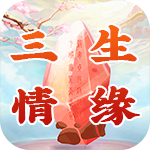1. 英語7種基本句型
英語的基本句型主要有五種,它們是:1、主語———動詞———表語2、主語———動詞3、主語———動詞———賓語4、主語———動詞———賓語———賓語5、主語———動詞———賓語———補語掌握好這些基本句型,就可以為靈活運用語言打下良好的基礎.下面分別講解這五種句型.一、主語---動詞----表語在這一句型中,動詞是系動詞,劃線部分為表語.1.Mr.Brown is an engineer.(名詞做表語)2.Gradualy he became silent.(形容詞做表語)3.She remained standing for a hour.(現在分詞做表語)4.The question remained unsolved.(過去分詞做表語)5.The machine is out of order.(介詞短語做表語)6.The television was on.(副詞做表語)7.His plan is to keep the affair secret.(動詞不定式做表語)8.My job is repairing cars.(動名詞做表語)9.The question is what you want to do.(從句做表語,即:表語從句)注意:在下面的句子中,形容詞做表語,在表語的后面常常接不定式結構.I'm happy to meet you.They are willing to help.We are determined to follow his example.二、主語———動詞在這一句型中,動詞為不及物動詞及不及物的動詞詞組.在有的句子中,不及物動詞可以有狀語修飾.1.The sun is rising.2.I'll try.3.Did you sleep well?(well做狀語,修飾不及物動詞sleep)4.The engine broke down.注意:在此句型中,有少數不及物動詞表達被動含義,表達主語本身所具有的特性,不用被動語態.1.The book sells wel.2.The window won't shut.3.The pen writes smoothly.4.Cheese cuts easily.三、主語———動詞———賓語在此句型中,動詞為及物動詞,劃線部分為賓語.1.Do you know these people(them)?(名詞或代詞做賓語)2.I can't express myself in English.(反身代詞做賓語)3.He smiled a strange smile.(同源賓語)4.We can't afford to pay such a price.(不定式做賓語)5.Would you mind waiting a few minutes?(動名詞做賓語)6.I hope that I have said nothing to pain you.(從句做賓語,即:賓語從句)注意:并不是所有的及物動詞都可以接上述各種情況做賓語,不同的動詞有不同的用法,所以,在學習動詞時,一定要掌握其用法.四、主語———動詞———賓語———賓語在此句型中,動詞可以稱作雙賓語動詞,在英語中,這樣的動詞并不多,在學習遇時,要牢記.后面的賓語為間接賓語和直接賓語,其中間接賓語在前,一般表人,直接賓語在后,一般表物.這類句型有三種情況.第一種情況,間接賓語可以改為to引導的短語.1.He handed me a letter.He handed a letter to me.2.She gave me her telephone number.She gave her telephone number to me.第二種情況,間接賓語可以改為for引導的短語.3.She sang us a folk song.She sang a folk for us.4.She cooked us a delicious meal.She cooked a delicious meal for us.第三種情況,直接賓語可以由賓語從句充當.5.Tell him I'm out.6.Can you inform me where Miss Green lives?五、主語———動詞———賓語———賓語補足語在此句型中的動詞,叫做可以跟復合賓語的動詞,在英語中,這樣的動詞也不多.后面的賓語補足語是說明賓語的情況的,賓語和賓語補足語一起被稱做復合賓語.這個句式是英語中比較復雜的一個句式,因為復合賓語的構成內容較多.下面句子中劃線部分為賓語補足語.1.He found his new job boring.(形容詞做賓補)2.The called their daughter Mary.(名詞做賓補)3.This placed her in a very difficult position.(介詞短語做賓補)4.We went to here house but found her out.(副詞做賓補)5.What do you advise me to do?(不定式做賓補)6.We thought him to be an honest man.(tobe做賓補)7.He believed them to have discussed the problem.(不定式的完成式做賓補)8.He believed her to be telling the truth.(不定式的進行式做賓補)9.Did you notice him come in?(不帶to的不定式做賓補)10.I saw her chatting with Nancy.(現在分詞做賓補)11.He watched the piano carried upstairs.(過去分詞做賓補)注意:在這個結構中,可以出現用it做形式上的賓語,把真正的賓語放在賓語補足語的后面.在此結構中,賓語常常是動詞不定式或賓語從句.1.He felt it his duty to mention this to her.分析:it是形式賓語,hisduty是賓語補足語,to mention this to her是真正的賓語.2.I think it best that you should stay with us.分析:it是形式賓語,best是賓語補足語,that you should stay with us是真正的賓語.注意:1.習慣用語的使用在英語中,有很多動詞習慣用語,在學習的過程中,要注意它們的使用,不必分析單獨每個詞的使用.例:We are short of money.(be short of中short做表語)She is always making trouble for her friends.(trouble做make的賓語)He has carried out our instructions to the letter.(our instructions做詞組carry out的賓語)We are waiting for the rain to stop.(wait for后面的the rain是賓語,to stop是賓語補足語)2.在英語中,大多數動詞既可以做及物動詞又可以做不及物動詞,而且還會有一些固定詞組,因此一個動詞可以用于幾種句型.例:ask①Did you ask 。
2. 用英文怎樣寫下列句子
1,Do you like hamburger?2,what does she want?3,She wants an ice-cream4,what does your mother look like ?5,She is of medium build with short, curly hair.6,what about his character?7,what are your likes and dislikes?8,He looks like a star,doesn't he ?9,I don't think that he looks like a star.10,what do you like to do in the vacation?11,I like do swimming.12,How do we keep the room tidy?13,Staying at home and doing housework for our parents is a good thing.14,We need to take no. 2 bus.句子真多啊,累死我了。
3. 英語有哪些句型基本結構
英語五種基本句型列式如下: 基本句型一: S V (主+謂) 基本句型二: S V P (主+謂+表) 基本句型三: S V O (主+謂+賓) 基本句型四: S V o O (主+謂+間賓+直賓) 基本句型五: S V O C (主+謂+賓+賓補) 基本句型 一 此句型的句子有一個共同特點,即句子的謂語動詞都能表達完整的意思. 這類動詞叫做不及物動詞,后面可以跟副詞、介詞短語、狀語從句等. ┏━━━━━━━━━━━━━━━┯━━━━━━━━━━━━━━━┓ ┃ S │ V (不及物動詞) ┃ ┠———————————————┼———————————————┨ ┃1. The sun │was shining. ┃ ┃2. The moon │rose. ┃ ┃3. The universe │remains. ┃ ┃4. We all │breathe, eat, and drink. ┃ ┃5. Who │cares? ┃ ┃6. What he said │does not matter. ┃ ┃7. They │talked for half an hour. ┃ ┃8. The pen │writes smoothly ┃ 1. 太陽在照耀著. 2. 月亮升起了. 3. 宇宙長存. 4. 我們大家都呼吸、吃和喝. 5. 管它呢? 6. 他所講的沒有什麼關系. 7. 他們談了半個小時. 8. 這支筆書寫流利. 基本句型 二 此句型的句子有一個共同的特點:句子謂語動詞都不能表達一個完整的意思,必須加上一個表明主語身份或狀態的表語構成復合謂語,才能表達完整的意思.這類動詞叫做連系動詞.系動詞分兩類:be, look, keep, seem等屬一類,表示情況;get, grow, become, turn等屬另一類,表示變化.be 本身沒有什麼意義,只起連系主語和表語的作用.其它系動詞仍保持其部分詞義. ┏━━━━━━━┯━━━━━━━┯━━━━━━━━━━━━━━━┓ ┃ S │V(是系動詞)│ P ┃ ┠———————┼———————┼———————————————┨ ┃1. This │is │an English-Chinese dictionary.┃ ┃2. The dinner │smells │good. ┃ ┃3. He │fell │in love. ┃ ┃4. Everything │looks │different. ┃ ┃5. He │is growing │tall and strong. ┃ ┃6. The trouble│is │that they are short of money. ┃ ┃7. Our well │has gone │dry. ┃ ┃8. His face │turned │red. ┃ ┗━━━━━━━┷━━━━━━━┷━━━━━━━━━━━━━━━┛ 1. 這是本英漢辭典. 2. 午餐的氣味很好. 3. 他墮入了情網. 4. 一切看來都不同了. 5. 他長得又高又壯. 6. 麻煩的是他們缺少錢. 7. 我們的井干枯了. 8. 他的臉紅了. 基本句型 三 此句型句子的共同特點是:謂語動詞都具有實義,都是主語產生的動作,但不能表達完整的意思,必須跟有一個賓語,即動作的承受者,才能使意思完整.這類動詞叫做及物動詞. ┏━━━━━━━┯━━━━━━━┯━━━━━━━━━━━━━━━┓ ┃ S │V(及物動詞)│ O ┃ ┠———————┼———————┼———————————————┨ ┃1. Who │knows │the answer? ┃ ┃2. She │smiled │her thanks. ┃ ┃3. He │has refused │to help them. ┃ ┃4. He │enjoys │reading. ┃ ┃5. They │ate │what was left over. ┃ ┃6. He │said │"Good morning." ┃ ┃7. I │want │to have a cup of tea. ┃ ┃8. He │admits │that he was mistaken. ┃ ┗━━━━━━━┷━━━━━━━┷━━━━━━━━━━━━━━━ 1. 誰知道答案? 2. 她微笑表示感謝. 3. 他拒絕幫他們的忙. 4. 他喜歡看書. 5. 他們吃了剩飯. 6. 他說:“早上好!” 7. 我想喝杯茶. 8. 他承認犯了錯誤. 基本句型 四 此句型的句子有一個共同特點:謂語動詞必須跟有兩個賓語才能表達完整的意思.這兩個賓語一個是動作的直接承受者,另一個是動作的間接承受者. 通常這一間接承受者用一個介詞來連接,當動作的間接承受者在動作的直接承受者之前時,這一介詞往往被省略. ┏━━━━┯━━━━━┯━━━━━━━┯━━━━━━━━━━━━┓ ┃ S │V(及物)│ o(多指人) │ O(多指物) ┃ ┠————┼—————┼———————┼————————————┨ ┃1. She │ordered │herself │a new dress. ┃ ┃2. She │cooked │her husband │a delicious meal. ┃ ┃3. He │brought │you │a dictionary. ┃ ┃4. He │denies │her │nothing. ┃ ┃5. I │showed │him │my pictures. ┃ ┃6. I │gave │my car │a wash. ┃ ┃7. I │told │him │that the bus was late. ┃ ┃8. He │showed │me │how to run the machine. ┃ ┗━━━━┷━━━━━┷━━━━━━━┷━━━━━━━━━━━━┛ 1. 她給自己定了一套新衣裳. 2. 她給丈夫煮了一餐美饌. 3. 他給你帶來了一本字典. 4. 他對她什麼都不拒絕. 5. 我給他看我的照片. 6. 我洗了我的汽車. 7. 我告訴他汽車晚點了. 8. 他教我開機器. 基本句型 五 此句型的句子的共同特點是:動詞雖然是及物動詞,但是只跟一個賓語還 不能表達完整的意思,必須加上一個補充成分來補足賓語,才能使意思完整. ┏━━━━┯━━━━━┯━━━━━━━┯━━━━━━━━━━━━┓ ┃ S │V(及物)│ O(賓語) │ C(賓補) ┃ ┠————┼—————┼———————┼————————————┨ ┃1. They │appointed │him │manager. ┃ ┃2. They │painted │the door │green. ┃ ┃3. This │set │them │。
4. 【求幾個英文句子要求,類似那種名人名言,句式不要太長,最好就
1. Pain past is pleasure.(過去的痛苦就是快樂.)[無論多麼艱難一定要咬牙沖過去,將來回憶起來一定甜蜜無比.] \x05\x052. While there is life,there is hope.(有生命就有希望/留得青山在,不怕沒柴燒.) \x05\x053. Wisdom in the mind is better than money in the hand.(腦中有知識,勝過手中有金錢.)[從小灌輸給孩子的堅定信念.]\x05\x054. Storms make trees take deeper roots.(風暴使樹木深深扎根.)[感激敵人,感激挫折!] \x05\x055. Nothing is impossible for a willing heart.(心之所愿,無所不成.)[堅持一個簡單的信念就一定會成功.] \x05\x056. The shortest answer is doing.(最簡單的回答就是干.)[想說流利的英語嗎?那麼現在就開口!心動不如嘴動.] \x05\x057. All things are difficult before they are easy.(凡事必先難后易.)[放棄投機取巧的幻想.] \x05\x058. Great hopes make great man.(偉大的理想造就偉大的人.) \x05\x059. God helps those who help themselves.(天助自助者.) \x05\x0510. Four short words sum up what has lifted most successful individuals above the crowd:a little bit more.(四個簡短的詞匯概括了成功的秘訣:多一點點!)[比別人多一點努力、多一點自律、多一點決心、多一點反省、多一點學習、多一點實踐、多一點瘋狂,多一點點就能創造奇跡!] \x05\x0511. In doing we learn.(實踐長才干.) \x05\x0512. East or west,home is best.(東好西好,還是家里最好.) \x05\x0513. Two heads are better than one.(三個臭皮匠,頂個諸葛亮.) \x05\x0514. Good company on the road is the shortest cut.(行路有良伴就是捷徑.) \x05\x0515. Constant dropping wears the stone.(滴水穿石.) \x05\x0516. Misfortunes never come alone/single.(禍不單行.)\x05\x05\x05\x0517. Misfortunes tell us what fortune is.(不經災禍不知福.)\x05\x0518. Better late than never.(遲做總比不做好;晚來總比不來好.) \x05\x0519. It's never too late to mend.(過而能改,善莫大焉;亡羊補牢,猶未晚也.) \x05\x0520. If a thing is worth doing it is worth doing well.(如果事情值得做,就值得做好.) \x05\x0521. Nothing great was ever achieved without enthusiasm.(無熱情成就不了偉業.) \x05\x0522. Actions speak louder than words.(行動比語言更響亮.)\x05\x0523. Lifeless,faultless.(只有死人才不犯錯誤.) \x05\x0524. From small beginning come great things.(偉大始于渺小.) \x05\x0525. One today is worth two tomorrows.(一個今天勝似兩個明天.) \x05\x0526. Truth never fears investigation.(事實從來不怕調查.) \x05\x0527. The tongue is boneless but it breaks bones.(舌無骨卻能折斷骨.) \x05\x0528. A bold attempt is half success.(勇敢的嘗試是成功的一半.) \x05\x0529. Knowing something of everything and everything of something.(通百藝而專一長.)\x05\x0530.Good advice is beyond all price.(忠告是無價寶.)。
5. 【表示要求和請求的英語句型
1.請求:Could you please+do sth.Could you+do sth.Would you please+do sth.Would you+do sth.肯定回答:Sure./Of course./No problem./I'd love to.否定回答:Sorry./I'd love to but I… 例:1)Could you please clean our yard?你能打掃一下我們的院子嗎?2)Could you turn to page 34?請翻到34頁好嗎?3)Would you please turn on the light?請打開燈好嗎?4)Would you close the door?請關上門好嗎?2.委婉地提出被允許做某事:Could I please+do sth.Could I+do sth.肯定回答:Sure./Of course./No problem.否定回答:Sorry.例:1)Could I please borrow your car?我可以借你的車嗎?2)Could I buy some drinks and snacks?我可以買一些飲料和小吃嗎?。
6. 【英語句子的表達是否正確,哪句錯了,該怎麼表達1.)heisadoctor,
這些句子看來是希望這種用法的:1) He is a doctor,but he doesn't like it,because he thinks it's a busy and tiring job.2) He is a doctor,but he doesn't like his job.3) I think study (of ) interesting.4) I think the student very interesting.5) I think the doctor boring.6) I think being a doctor is a boring job.7) He thinks his job boring.祝進步.。

















